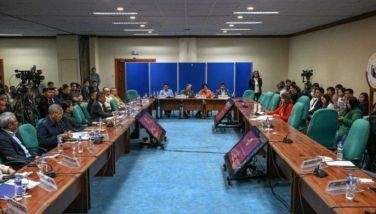ADB urges support for senior citizens

MANILA, Philippines — Governments in Asia are urged to promote the availability of job opportunities and lifelong learning for older people, as well as strengthen health services to manage the growing population of older workers, the Asian Development Bank (ADB) said.
In the multilateral lender’s latest blog, ADB economists Aiko Kikkawa and Raymond Gaspar made recommendations on what governments can do to support the desire of older people or those 60 years old and above in the region to work longer.
“While raising the pensionable age may be inevitable at some point, the priority must be to ensure that ample job opportunities are provided to older persons beyond the low-wage farm and retail work that heighten informality,” the ADB economists said.
As obsolete skills pose a challenge for older people to remain in the workplace, the economists said support for lifelong learning would be helpful.
This can be done through financial incentives for workers and employers, while looking at the specific needs of older learners.
In addition, the economists said Asian governments should promote measures to discourage age discrimination in the workplace and revisit seniority-based human resource practice.
They also said governments need to strengthen health services and preventive care to address the rising incidence of noncommunicable diseases among the elderly.
Moreover, they said technology to enhance productivity of older persons and match them to jobs should be utilized.
The economists said Asia’s population is aging rapidly, with individuals who are 65 years old and above expected to account for a bigger share of 18 percent or 800 million of the region’s total population by 2050 from just eight percent in 2019.
As the number of older people is expected to increase, the region’s working force is seen to shrink, with the number of people in the 16 to 64 age group to peak by 2045 and then begin declining.
“Over the last three decades, the labor force participation rates of individuals in the region aged between 60 and 64 remained relatively high at more than 50 percent,” the economists said.
They said many of the older people in Asia’s developing countries are working in low-wage farm and retail jobs.
In the Philippines and Indonesia, the economists said many older adults continue to work in the wholesale and retail sector, with at least 15 percent of the individuals in their 60s.
They also said many of the older people who continue to actively work are in the informal sector and are self-employed in rural areas, often not eligible for pension and have limited options for retirement.
“Opportunity abounds if Asia effectively taps the talents and expertise of the growing population of more educated and healthier older workers,” the economists said.
- Latest
- Trending































